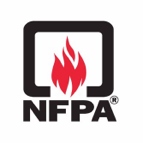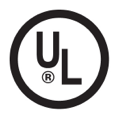Why Ground Protection Matting?
Ground conditions play a significant role in field operations and projects that need access to remote sites. Wet, muddy, or uneven ground can cause projects to be delayed or even halted. Unstable ground conditions are also a frequent cause of minor incidents and near misses on sites.
TuffTrak® ground protection mats are the popular choice among professionals. They are easy to use, quick to deploy and lock into place to form a continuous, solid, safe, and durable roadway or working platform. They are unequaled for quality and performance even under the most hazardous conditions.
Want to know more?
Speak with our team of experts today by calling us on +44 (0) 1279 647 021 or emailing us at [email protected].
History
TuffTrak Ground Protection Solutions came to life when founder, Iain Brown, remortgaged his house to set up his ground Solutions company back in 2007. Today as designers, manufacturers and suppliers of temporary access and ground protection solutions, we aim to provide our customers with innovative ‘best in class’ products delivering the highest levels of performance, value and safety at all times.

How can we help you today?
We have many safety items in our range. Are you looking for something specific? Then you can enter and search what you are looking for above.
Brands
At Justrite, everything starts with safety. For over a century, we have protected workers, workplaces and the environment with a comprehensive range of industrial safety solutions.
Our latest news

Cleaning And Organizing Your Computer
Last month, my wife, Anne Doe, took me to Las Vegas because this and that

Cleaning And Organizing Your Computer
Last month, my wife, Anne Doe, took me to Las Vegas because this and that

Cleaning And Organizing Your Computer
Last month, my wife, Anne Doe, took me to Las Vegas because this and that

Cleaning And Organizing Your Computer
Last month, my wife, Anne Doe, took me to Las Vegas because this and that
Services
At Justrite, everything starts with safety. For over a century, we have protected workers, workplaces and the environment with a comprehensive range of industrial safety solutions.

Products

Track Shipments

Request a Quotation

Download Marketing Materials
Industries we work for
Last month, my wife, Anne Doe, took me to Las Vegas because she had to go for a business convention. Needless to say, she writes for an guide to casinos and I hate gambling.
Approvals & Compliances






















